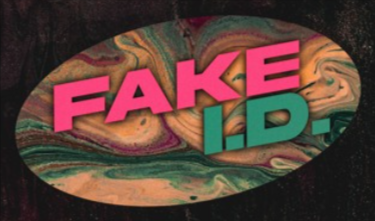In the world of law enforcement and intelligence, undercover operations play a critical role in combating crime and gathering crucial information. To navigate the shadowy realms of criminal networks and covert activities, law enforcement agencies often employ deceptive templates to create convincing cover identities.
Crafting Convincing Cover Identities
Undercover agents need to seamlessly assimilate into criminal environments to gather information and thwart illegal activities. Deceptive templates, carefully crafted to resemble authentic documents, provide these agents with cover identities that withstand scrutiny. These templates include identification cards, passports, and driver’s licenses that enable undercover agents to establish credible personas in the criminal underworld.
The Art of Counterfeiting for Good
While the creation of deceptive templates may appear akin to counterfeiting, their purpose in undercover operations is vastly different. Unlike counterfeit documents used for illicit activities, these templates serve a lawful purpose, empowering law enforcement to infiltrate criminal organizations and dismantle them from within. The artistry of counterfeiting is repurposed for the greater good of society.
Enhancing Credibility Through Details
The success of undercover operations heavily relies on attention to detail. Deceptive templates must mirror authentic documents meticulously, incorporating accurate fonts, holographic elements, and security features. The level of detail employed ensures that these templates can withstand scrutiny during encounters with suspicious individuals or authorities.
Meeting Legal and Ethical Standards
While undercover operations serve vital law enforcement purposes, their execution must not infringe upon legal and ethical boundaries. The use of deceptive papers requires adherence to strict legal protocols and oversight to ensure the protection of individual’s rights and privacy. Law enforcement agencies must strike a balance between achieving their objectives and respecting legal and ethical constraints.

Overcoming Technological Advances
As technology advances, so do the counterfeiting techniques used by criminals. Undercover agents must stay vigilant and employ cutting-edge technology in the creation of deceptive templates to keep one step ahead of the criminals they seek to infiltrate. Advanced authentication methods and forensic analysis are essential to combat evolving counterfeit practices.
Minimizing Collateral Damage
Undercover operations inherently involve risks, both for the agents involved and the communities they operate within. While deceptive templates are powerful tools, their misuse or exposure can have unintended consequences. Law enforcement agencies must carefully weigh the risks and benefits of each operation, minimizing collateral damage and prioritizing public safety.
Psychological and Emotional Toll
Undercover agents operating with deceptive templates often face significant psychological and emotional challenges. Maintaining a cover identity for extended periods can lead to identity confusion and emotional strain. The constant stress of living a double life requires strong mental fortitude and support systems to ensure the well-being of the agents.

Leave a Comment